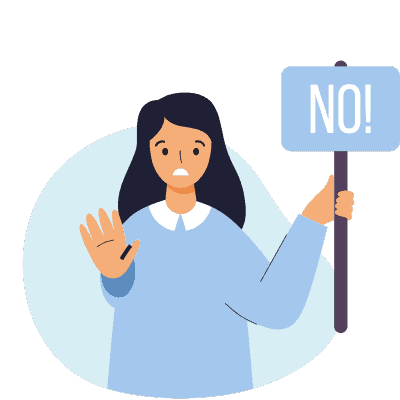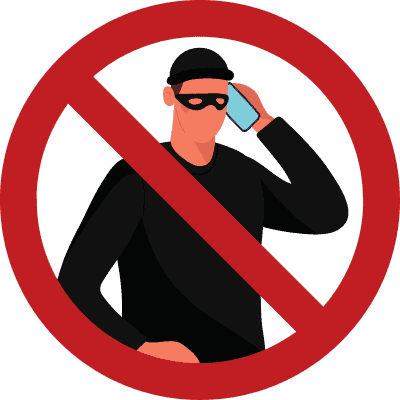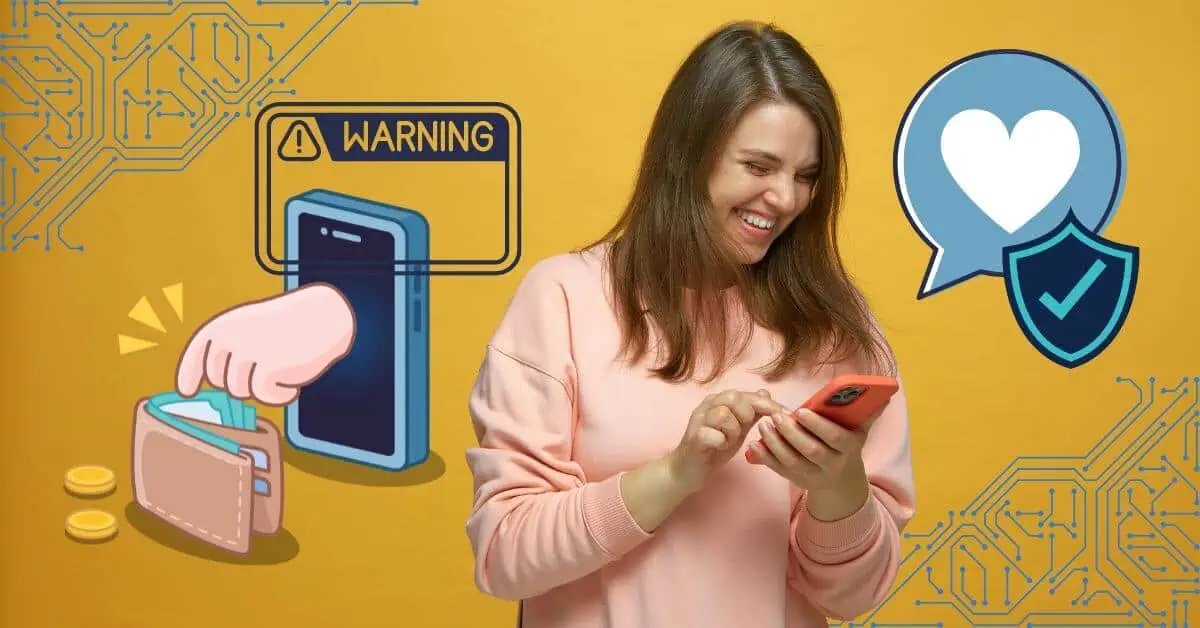Dating is one of life’s great joys. That ‘butterfly in the stomach’ feeling when you’re meeting someone new, the excitement of not knowing where that connection will take you and whether sparks might fly. Will they become your future partner, someone to enjoy some spontaneous fun with, or a close friend? Whatever path it takes, dating should always be fun and safe.
Below are some steps to consider when dating, both to keep yourself safe and also to be aware of the impact your behavior may have on others.
Be You, But Less
Before creating an online dating profile or account, take a step back and think about yourself. What’s important to you? Get to know yourself better. Consider your boundaries, your values, etc. This can all help to build confidence as you “put yourself out there,” as they say.

Don’t try to be someone you’re not. It’s well-documented that people are more attracted to authenticity. But that doesn’t mean that you need to share EVERYTHING. Just like in real life, be cautious of what you share digitally. For example, do people on dating apps really need to know what street you live on? No, they don’t. As with any social media profile, you can put yourself out there without putting ALL of yourself out there.
When you do create that profile, be honest about your age and use authentic photos. You’ll be quickly found out if you’re pretending to be someone you’re not, which is unlikely to lead to success and potentially get you banned from the dating app.
Respect Starts From the First Match
Be interested to be interesting. The questions you ask, how you ask them, and when you ask them can be important. Be upfront but be mindful not to ask intrusive or uncomfortable questions.
Everyone’s boundaries are different, yet we can all agree that there are lines we should not cross. Don’t find yourself on the wrong side of the track.
Whether said as jokes or pick-up lines, messages that use racist, sexist, homophobic, or able-ist language will always fall flat. What’s more, apps such as Tinder go further and have built-in tech features such as ‘Are You Sure’ that will detect any language in messages you’re about to send that might be deemed inappropriate or a little “iffy” by the receiving party. Pause and think about how the other person will receive your question/message. If you have any doubts— don’t send it.


Equally, don’t feel responsible for how someone else reacts to the boundary you’ve set. If you’ve received an inappropriate message or experienced bad behavior, don’t be afraid to report it. Aside from all the built-in safety features, dating apps are online communities and rely on their member’s reporting to create a better experience for all.
Don’t be afraid to take a break and log off, and don’t put too much pressure on yourself. If you’re not feeling it, take a break from dating and concentrate on yourself, doing something that makes you happy.
Dating Profile Discretion
There are a lot of things you can do to keep yourself safe while still playing the dating game.
Dating app users should always be cognizant of how much data and details about themselves they are giving away on a dating app profile. As reported by the Guardian, linking your social media account can reveal personal information you may not want a stranger to know.
The Guardian suggests using pics for your dating profile that differs from the ones you have posted to your social media accounts–this way if a curious user does a reverse image search, it won’t return results with your social media information. And never ever give out your contact information, physical address, financial information, or sensitive personal information on a dating app.

Practice Reading ‘Red Flags’
When you’ve been on dating apps for a bit, the red flags become bright red–but if you are new to online dating, look for these potential red flags; lack of personal information, unclear (or too perfect) profile photos, and profile bios and “about me’s” that boldly proclaim a user is sexist, racist, or any other trait you find offensive. The majority of people on dating apps are honestly looking for genuine connections; however, some people may create profiles with bad intent, like scammers and catfishers.

A super obvious red flag is if anyone mentions money in their profile or anyone you match with immediately starts talking about cash and the fact that they need some (urgently). Regardless of how much of a ‘Romeo’ or ‘Juliet’ they are, always err on the side of caution: when money is the first or only topic of conversation, that’s a warning sign.
To help you steer clear of scammers, many dating apps now have photo verification tools to ensure that the profile pic is actually the person you are chatting with. On Tinder, verified photos have a blue tick, and this is really helpful when searching for potential matches! There’s even a premium feature on Tinder where you can choose only to see verified profiles.

And ultimately, whether a connection starts on a dating app or IRL, the rules are the same. Look after number one, which is YOU!
Know When to Peace Out
So you’ve matched, you had a chat, perhaps even a video call, but it’s just not happening for you. Now is the point that you need to let your match know- yikes!
Here are some suggestions for dipping out and getting dipped out on:
- Do it in an appropriate and respectful way, give direct feedback, but above all, be kind. And remember, no one likes a ghost!
- However, there are times when a swift goodbye is best. If you feel uncomfortable or are unhappy with your match’s behavior, trust your gut and know that some situations merit an immediate unmatch or block and report.
- And if you’re on the receiving end of a ‘goodbye,’ especially if it’s an unexpected one–take a step back. Everyone, and we mean everyone, will get rejected at some point in their life–it’s part of the dating journey. But as hard and emotionally upsetting as it is, leave the insults out, don’t try to change their mind, and remember that they don’t owe you anything.
Final Takeaways
Fundamentally dating is all about you, regardless of whether it’s via a dating app or IRL. Safety is always key. If you wouldn’t do it IRL, don’t do it digitally.
Get familiar with the community rules for all dating apps and lean into safety tools (such as Tinder’s block contacts or its safety center). And remember, this is all about you. If it doesn’t feel right, don’t do it!
